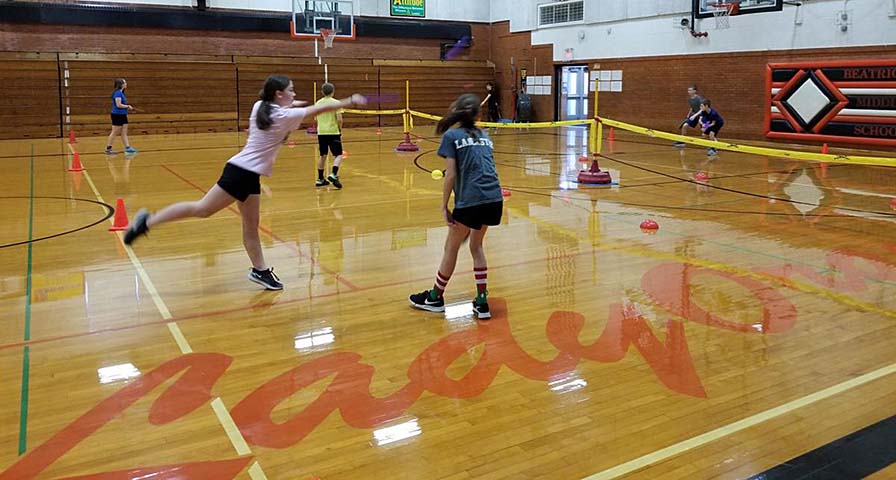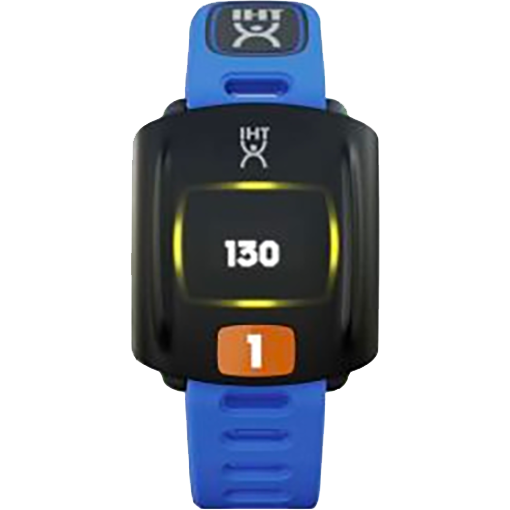Originally published April 2, 2019 in the Beatrice Daily Sun.
By Monica Brich
For years, public schools have taught students skills to improve their physical, mental and emotional health. But as new information and technology has come out, the way health is taught is constantly changing.
Jordan Johnson, a physical education teacher at Paddock Lane Elementary, said he focuses on teaching and applying skills.
“With K-2 we try to do a lot more skill stuff, and try to incorporate activities they can use those skills in,” Johnson said. “With third through fifth, I use more of a sports model. So we do the skills, we do a lot of practicing and then we lead up to a game. Some of the really good athletes, they don’t like that, but I’m more concentrated on getting everybody to at least understand the game and understand the skills before we get there.”
Johnson said students have P.E. classes twice a week.
“It needs to be about five times a week,” Johnson said. “I wish we could do every day, but that’s kind of why I stick with one thing for a month. Then they’re really getting eight days’ worth of PE on that one subject.”
Johnson said that students need to participate in order to be successful.
In middle school, students use the skills they learned to work on overall wellness.
“We do fitness assessments, we do the old traditional presidential fitness challenge, and then we modify some things with that,” said Carolyn Hovendick, P.E. teacher at Beatrice Middle School. “We do the pacer test when we’re inside. We do a timed mile run probably three or four times in a semester, but our goal is to have them run a mile or do enough exercise that would equal a mile about every day in class. We have stationary bikes. We do gym games, we play pickleball, we do lacrosse, soccer, basketball, volleyball, touch football.”
Jeff Junker, another middle school P.E. teacher, said they try to hide the amount of running students are going in the games they play.
“We do different activities where they’re actually running, so they get about a mile in every day, which they don’t realize what they’re doing, and it gets them into good shape. We do cardiovascular, we do a lot with flexibility. Strength. We do weightlifting with seventh and eighth graders.”
In addition to being the P.E. teachers, Hovendick and Junker teach health to all three grades.
“Sixth grade, we teach nutrition and fitness,” Hovendick said. “Mainly more on fitness, exercise. Then we do an adolescent growth and development unit, and then we do a drug and alcohol unit. Seventh grade, we do fitness, and then get more into nutrition. Nutrition goes along with family and consumer science. They do more technical stuff with nutrition, and we kind of do the overview of how it relates with working out and things that we need to do in that realm.”
Junker added teachers have incorporated a unit on vaping, due to its rise in popularity.
“We do our health units within P.E.,” Hovendick said. “We have semester classes, so within the semester we drop in and out of health class so that about every other day they still have PE class. So it’s not like we take six weeks and block out and do health. Every other day at least, they’re in the gym or in the weight room working out. We push it as far back into the cold months as we can so that we can have them outside as much as possible.”
Junker explained that having P.E. as a semester course causes some problems, as kids that age need opportunities to move around.
Beatrice High School requires students to take two semesters of P.E. in order to graduate, and has class options such as aerobics, lifetime fitness, recreational team sports and advanced conditioning.
Melissa Carper, one of the high school P.E. teachers, said every day students are doing something different.
“We do a lot of things with P.E. class,” Carper said, “we do a lot of games. In team and rec sports, recreational things they can do, not just go play five on five full-court basketball. But those recreational games. We do badminton, pickleball, volleyball, all those things. We go outside and do Frisbee golf, soccer, flag football, those things that can be recreational later on. In aerobics class, basically they have to do- just like Tabata is something you can download on your phone and get a quick, interval workout in.
Carper is also the high school health teacher, and health class is a requirement to graduate. She always starts her health units off with a unit on mental and emotional health.
Seeking IHT Spirit System information?





